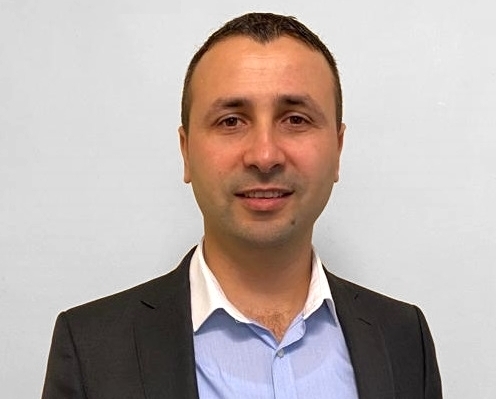
COVID-19: MBZUAI expert discusses the role of AI in predicting and fighting pandemics
During this month’s MBZUAI Talks session – hosted by Mohamed bin Zayed University of Artificial Intelligence (MBZUAI), the world’s first graduate-level, research-based artificial intelligence (AI) university – Dr. Mohammad Yaqub, Assistant Professor at MBZUAI and research fellow at the University of Oxford, discussed the role of AI in the current fight against COVID-19, as well as how it can be applied to help identify future pandemics and halt their spread.
The ongoing COVID-19 pandemic has highlighted the need to be prepared for high-impact, disruptive events. According to Dr. Yaqub, AI and academic research are proving to be important tools in overcoming COVID-19 and future pandemic mitigation.
The ‘How does AI help fight the COVID-19 pandemic?’ webinar was the second in the MBZUAI Talks series, which sees experts in the field of AI host informative sessions to provide members of the public with a deeper understanding of artificial intelligence and its transformative potential.
During the webinar, Dr. Yaqub provided an overview of several innovative solutions leveraging AI to help detect, respond and recover from the pandemic. He also discussed how AI could predict future infections; facilitate healthcare solutions; accelerate research to understand and treat COVID-19, and even predict the impact of government policy decisions.
Dr. Yaqub said: “AI could make post-pandemic recovery quicker, easier and more robust. During the COVID-19 pandemic, AI has been crucial in tackling not only the healthcare consequences of the disease but also other important implications which affect social, economic and policy making decisions. The world is facing many challenges as it fights COVID-19, however, advances in AI solutions could be influential in helping predict, detect and treat future pandemics.”
In the case of COVID-19, Dr. Yaqub explained how multiple companies had used AI and successfully flagged an unusual increase in pneumonia cases in Wuhan, the day before China announced the new virus. The companies used their own AI algorithms to mine news and social media sources to recognize unusual patterns. If more data could be included and combined from other sources, such as hospital admissions and flight data, Dr. Yaqub suggested that AI could be a very powerful tracking tool in the future.
He explained how AI-empowered drug repurposing had proved beneficial, due to technological advancements in AI combined with increased computational power. AI allows to quickly investigate and simulate the effect of using existing drugs which are used against other diseases on COVID-19 patients. For example, studies show that AI has helped identify rheumatoid drug Baricitinib as a potential treatment for the disease. The technology is also proving to be an important tool in the process of predicting virus mutations, which could help create an effective COVID-19 vaccine even as the virus mutates.
In terms of tracking infections, AI-driven trackers rely on processing data from multiple sources, such as phone-to-phone Bluetooth communications, geolocation, hospital admissions, flight information and credit card transactions. Dr. Yaqub said an AI algorithm could utilize this data and provide a much more complex and robust way of tracking infections. For example, if someone tested positive, credit card data could be used to determine which shops or restaurants they had visited and who they had come into contact with, helping trace the spread of the virus.
Looking ahead, Dr. Yaqub said AI could prove to be a very useful tool in policymaking and scenario planning. He explained how AI could help policymakers simulate scenarios and predict the economic and societal consequences of specific policies, actions, or events. For example, AI models could help predict food shortages and the consequent impact on the economy and supply chain, allowing decision-makers to proactively mitigate these issues.
The forthcoming MBZUAI Talks will be hosted by Professor Anil K. Jain, member of MBZUAI’s Board of Trustees and Distinguished Professor in the Department of Computer Science and Engineering at Michigan State University on September 1, 2020 at 18:00 UAE time. The session will be discussing the recent advances of AI research in biometrics and its applications on security and the fintech sector.



























